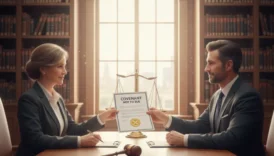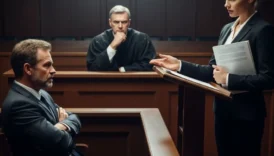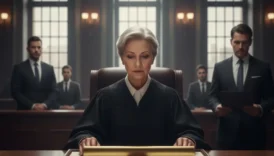What Is a Tortfeasor?

In tort law, individuals or entities can be held liable for causing harm to others through wrongful acts. The party responsible for committing such a wrongful act is known as a tortfeasor. This term is fundamental in civil law, as it identifies the person or entity against whom damages or remedies may be sought.
Simple Definition
A tortfeasor is a person or entity that commits a tort, meaning a wrongful act (other than a breach of contract) that causes harm or injury to another and gives rise to legal liability.
Real-Life Examples
- Car accidents: A negligent driver who causes an accident is the tortfeasor.
- Defamation: A person who publishes false statements damaging someone’s reputation.
- Medical malpractice: A doctor who fails to meet the standard of care and injures a patient.
- Property damage: A company that pollutes a river, harming nearby landowners.
Importance of the Term
- Identifies liability: Pinpoints who is responsible for harm caused.
- Supports compensation: Allows victims to seek damages from the responsible party.
- Encourages accountability: Deters individuals and businesses from negligent behavior.
- Strengthens justice: Ensures wrongdoers are held legally responsible for their actions.
Types of Tortfeasors
| Type | Description |
|---|---|
| Single tortfeasor | One person responsible for committing the wrongful act. |
| Joint tortfeasors | Two or more parties jointly responsible for the same harm. |
| Successive tortfeasors | Different parties whose separate acts cause similar or related harm. |
FAQ
1) Is a tortfeasor always an individual?
No. Businesses, organizations, or even governments can be tortfeasors.
2) Can multiple tortfeasors be held liable?
Yes. Joint tortfeasors can share responsibility for damages.
3) Is a tortfeasor always negligent?
Not necessarily. Intentional acts (like assault) and strict liability cases (like defective products) also create tortfeasors.
4) Can a tortfeasor be criminally liable too?
Yes. The same act can result in both civil liability (tort) and criminal charges.
5) How does the law treat joint tortfeasors?
Depending on jurisdiction, courts may impose joint and several liability, allowing victims to recover full damages from any one tortfeasor.
Closing
A tortfeasor is the party legally responsible for causing harm through a wrongful act in tort law. Recognizing tortfeasors allows victims to pursue justice and ensures accountability across individuals, businesses, and institutions.






